

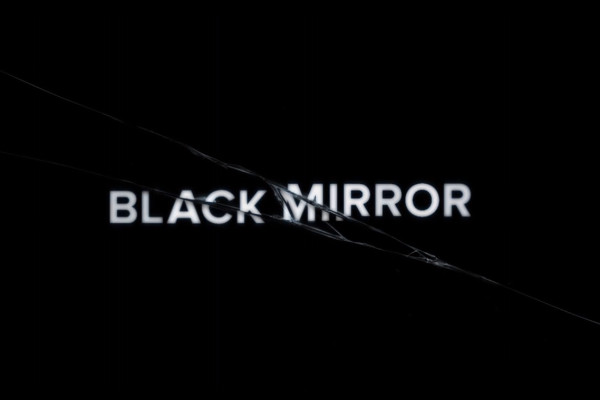
Originally published January 2018. With a new, six-episode season just released on Netflix, these six new episodes have now been added to the ranking...
Warning: Spoilers have been avoided as much as possible, but some plot points may be revealed in discussion of the storylines. Also, as Black Mirror contains adult themes, some of the images and discussion in this article may not be suitable for younger readers.
The series is currently available to buy online from Amazon.
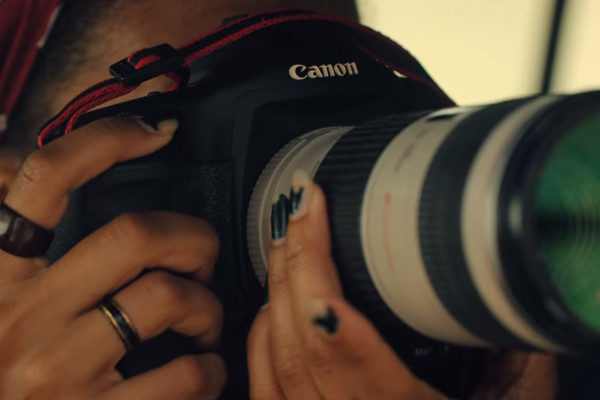
Since this look at Black Mirror was originally published back in January 2018, one question has continually come up with each new season that gets released - what exactly is Black Mirror? As the show moved from Channel 4 and into a higher-budgeted streaming platform, the dark show became lighter, with bigger name stars and episodes set in America. However, in 2023 it seemed that Charlie Brooker didn't really want to do Black Mirror at all.
Quoted in the Radio Times in June 2023, Brooker stated: "When Black Mirror started, it was 2011 and at the time, there weren't many shows that looked like it or there weren't many shows where someone looked at a smartphone frankly, let alone obsessed over one and sat there staring at it until it ruined them. It felt like there's quite a few shows with dystopian sci-fi technical themes. So, partly what I was doing, I was setting myself a task of 'What if I think of some storylines that aren't to do with technology and are to do with horror or set in the past?'"
The reference was related to Demon 79, but can easily apply here. The answer to the question 'What if I think of some storylines that aren't to do with technology and are to do with horror or set in the past?' is, of course, "That's not Black Mirror". Similar to the way in which writers of Star Trek don't (as far as I'm aware, at least) say "What if an entire season was just based around an animated shark?" or they don't bring back Mastermind and say "What if we took away the black chair and questions and had it about a jellyfish on smack, making its own crime documentary?", there's a reason why programmes fit within their own remit.
Black Mirror has a high number of possibilities - even if Charlie Brooker couldn't or wouldn't think of them for season six - but there comes a point when an episode stretches so far outside of its core tenets that it becomes something else entirely. These articles try to avoid spoilers as much as possible, so let's just say that with Mazey Day Charlie Brooker wanted to pay homage to a particular John Landis movie and leave it at that. Wrapped in a tonally inconsistent tale about paparazzi, this left-field tale isn't actually too bad in and of itself, even if its lead character never reaches more than two dimensions. But the real issue is, after seeing it, you have to ask yourself the question... what has any of it got to do with Black Mirror?
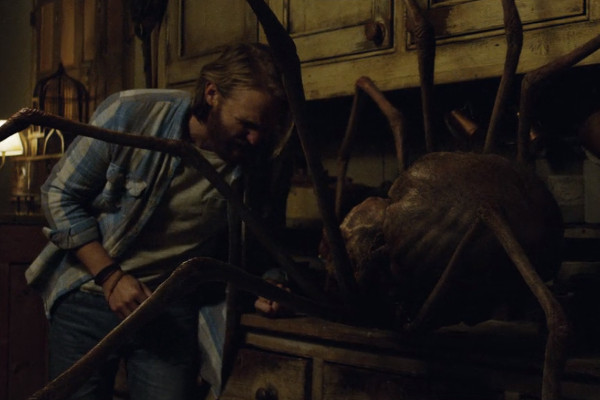
Wyatt Russell (Son of Kurt Russell and Goldie Hawn) stars as a down-on-his-luck backpack traveller who takes part in testing an immersive video game. What follows is a series of familiar horror tropes, packaged in a plot that's been seen many times before, including efforts like David Cronenberg's Existenz, a film which predates this episode by over fifteen years.
It's not that such genres shouldn't be a useable format for Black Mirror. Series creator Charlie Brooker has shown in the past that he's more than capable of mixing horror with his work, as with his 2008 Zombie/reality TV mash up Dead Set. However, Playtest plays with horror for its own sake, and has nothing to significant to say on the human condition. To make matters worse, Russell's over-the-top character may be the most irritating in all of Black Mirror.
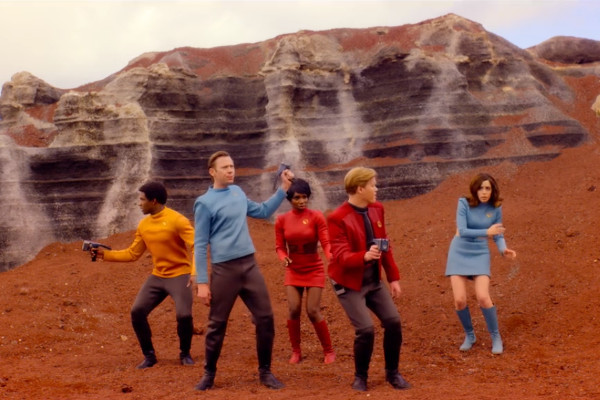
Running to an unnecessary 76 minutes, this was the second-longest episode of Black Mirror (it's now the fourth) even edging out the "three stories in one" Christmas special.
The idea of parodying Star Trek is, of course, not only old-hat, but a very American-orientated take on the series. Supporters of this episode will argue that it has more to say than just broad parody, and it does, but compared to the programme at its best, it's all very surface-level and obvious. And while people trapped in virtually realities had been used to psychologically devastating effect in some of the Channel 4 episodes, here a recreation-cum-parody of an entire sci-fi franchise meets broad comedy.
The cast do their best with the material, and it's always a pleasure to see Michaela Cole from the superb Chewing Gum, but this isn't a high point of the show. Most significantly, the plot point isn't even new to Star Trek itself, with a 1990 episode of The Next Generation, Hollow Pursuits, featuring a socially awkward character recreating the crew in his own personal fantasy to bolster his self-esteem.
Fortunately for the writers (William Bridges joined Charlie Brooker as co-writer for this instalment), then it was once again a Black Mirror episode that became unintentionally prescient. The concept of men abusing positions of power was filmed long before the "#MeToo" scandal broke, but, released on Netflix in December 2017, the episode seemed like a commentary on it.
Despite such criticisms, the episode became (to date) the one to receive the most plaudits, with 24 award nominations, including winning 4 Primetime Emmys. Some critics have even cited it as the best of the programme, with many liking the non-pessimistic tone... which does rather seem like enjoying a musical because it hasn't got any songs in it.
The episode was so popular it got a sequel in season seven, which appears a lot higher in this ranking. Maybe I need to give this one another go? But don't worry, like all rankings, such things are entirely subjective, it's all just in fun...
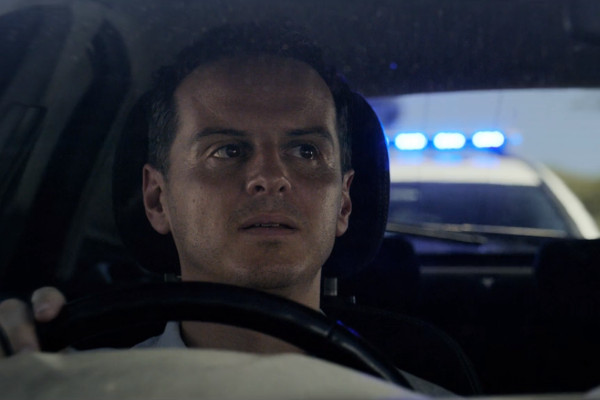
Probably the most reactionary and uninspired episode of Black Mirror ever made, as 70 minutes is given over to a message about how we all spend too much time on social media, and only view each others' lives (and deaths) through the screen. It's equivalent to those long posts and videos that talk about how we all use Facebook too much... that are posted on Facebook. Like said posts, the episode thinks it makes a stab at profundity, but instead specialises in stating the obvious.
Perhaps what really drags this entry down is an unusually sub-par cast. While Andrew Scott is excellent, and some of his co-stars are decent (Topher Grace is the other big name guest), some of the minor roles are filled with actors who are a little wooden and fail to maintain the reality of the piece. Possibly it's down to the direction, or the underwritten characters, but it often feels as if Scott is alone with no real back up, bearing his all in a nothing plot, when he deserved better.
Although this site makes reference to Charlie Brooker as the main writer of the show, it must also be acknowledged that his co-showrunner, Annabel Jones, has a significant input into the scripts. In a May 2018 Podcast with Adam Buxton, Brooker stated that "We'll be yabbering, and I'll say 'oh, here's an idea, so... umm... what if the internet had a temper?' [laughs] and she'll go 'what do you mean?' and we'll expand it from there."
This Podcast is particularly significant here, as Brooker jokingly slates critics of the series who would detract from its baser instincts: "That's one other thing that annoys me, is when people go 'Oh, that's the... Black Mirror's that show about computers are bad for you'. Yeah, I know that, thanks mate. Oh, what, this show that says we're looking at our phones too much? I know that, thanks pal.' Like I don't f***ing know how ridiculous a lot of the concepts are. F*** you! I'm pissing myself... you f***ing c***!"
With that established, it's time for this particular f***ing c***'s list to move on to entry No.30...
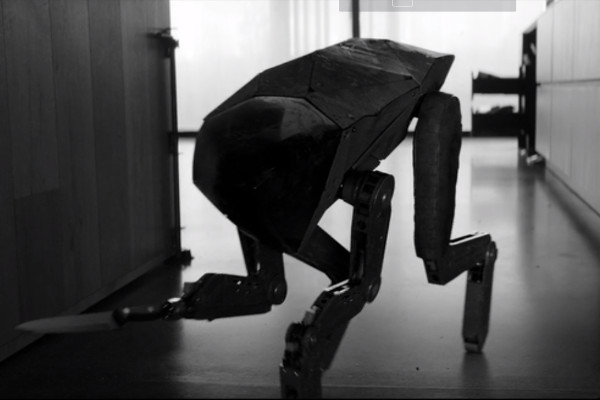
Black Mirror now has more Netflix-streamed episodes than Channel 4 ones, and has been a US-backed series for longer than it was ever a tightly-budgeted UK entity. There's perhaps a decent Black Mirror story still waiting to be told about a very English-centric writer selling out to a US company, and although seasons six and seven cast a few digs in Netflix's direction, they're generally half-hearted and humorous.
That's not to say that the Netflix episodes are all inferior to the first seven stories, and, indeed, many of them feature far higher up in this list. But just as many long-term viewers may be wondering why the programme suddenly features Americans in what was originally a very British take on anthology television, viewers new to the show may also wonder why the programme once featured exclusively English casts and a greatly reduced budget.
It's not as if Black Mirror has completely discarded its own identity, post-2014, with many of the Netflix shows still set in the UK. But while Metalhead is one such episode, thematically it's one of the most "American" episodes of all, with a metal "dog" hunting a victim in a narratively thin story that basically plays like the final act of Terminator and precious little else. Interestingly, season two's White Bear was slated to play out in the same manner, originally being a simple survival story before Charlie Brooker thought up twists and subtexts late in the day.
Metalhead is well acted, well made, and often beautiful to look at. The more cinematic take on the series with Netflix is met with some stunning black and white shots, the only episode not to be made in colour. However, there seems little reason for this beyond the purely artistic; nothing in Metalhead's content justifies the enforced sense of style.
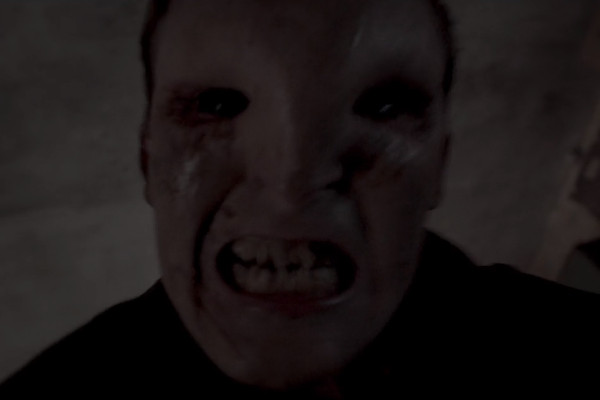
A critique of US military operations, featuring a computerised system that enables soldiers to see ordinary civilian targets as monstrous "roaches". Also featuring laser blast rifles, it was arguably the most pure "sci-fi" episode of Black Mirror upon its release, but has some important things to say. However, many of the messages it presents are overt and preachy - there's also, unusually for a series that champions strong female characters, a slightly gratuitous naked sex scene.